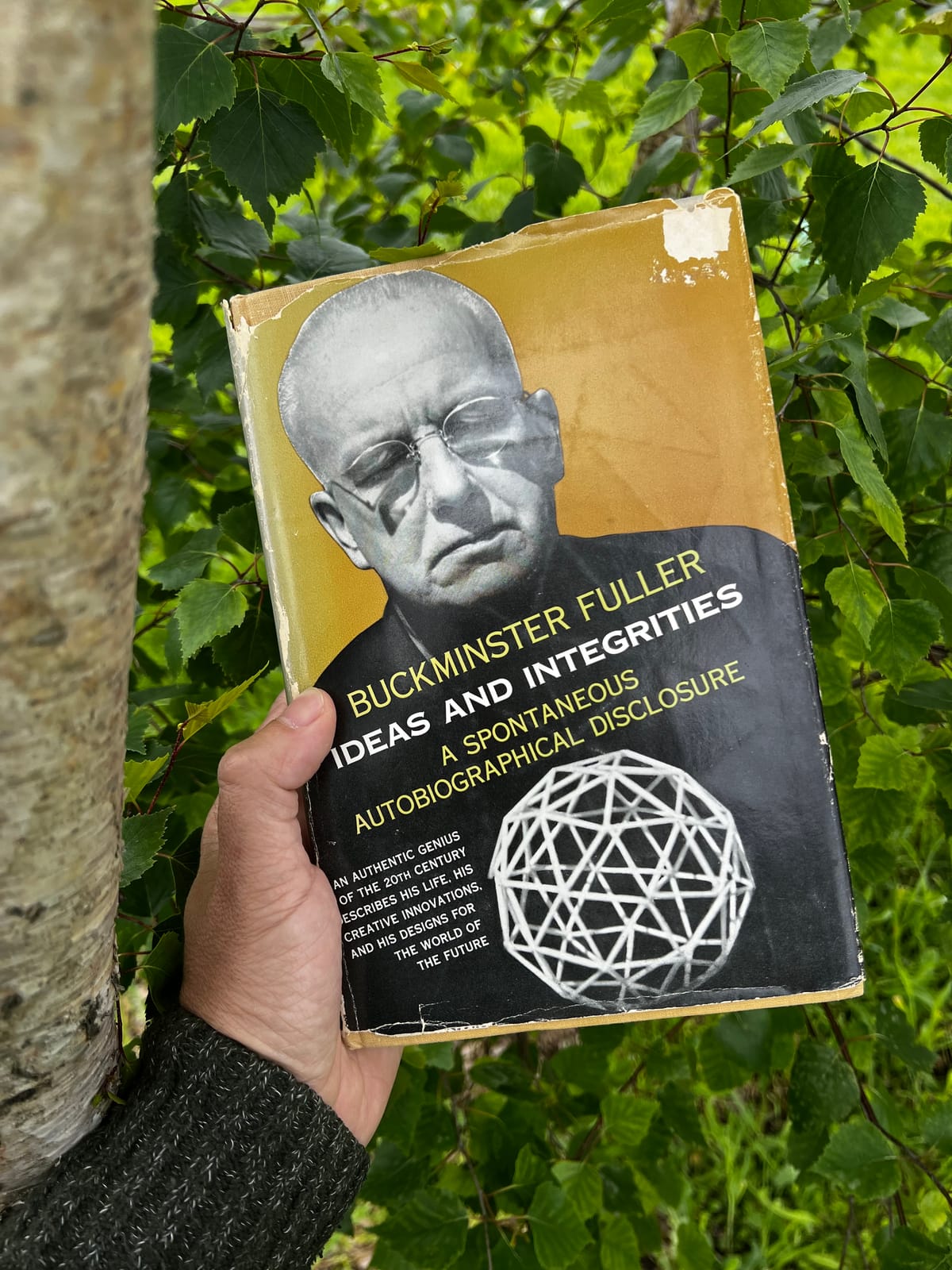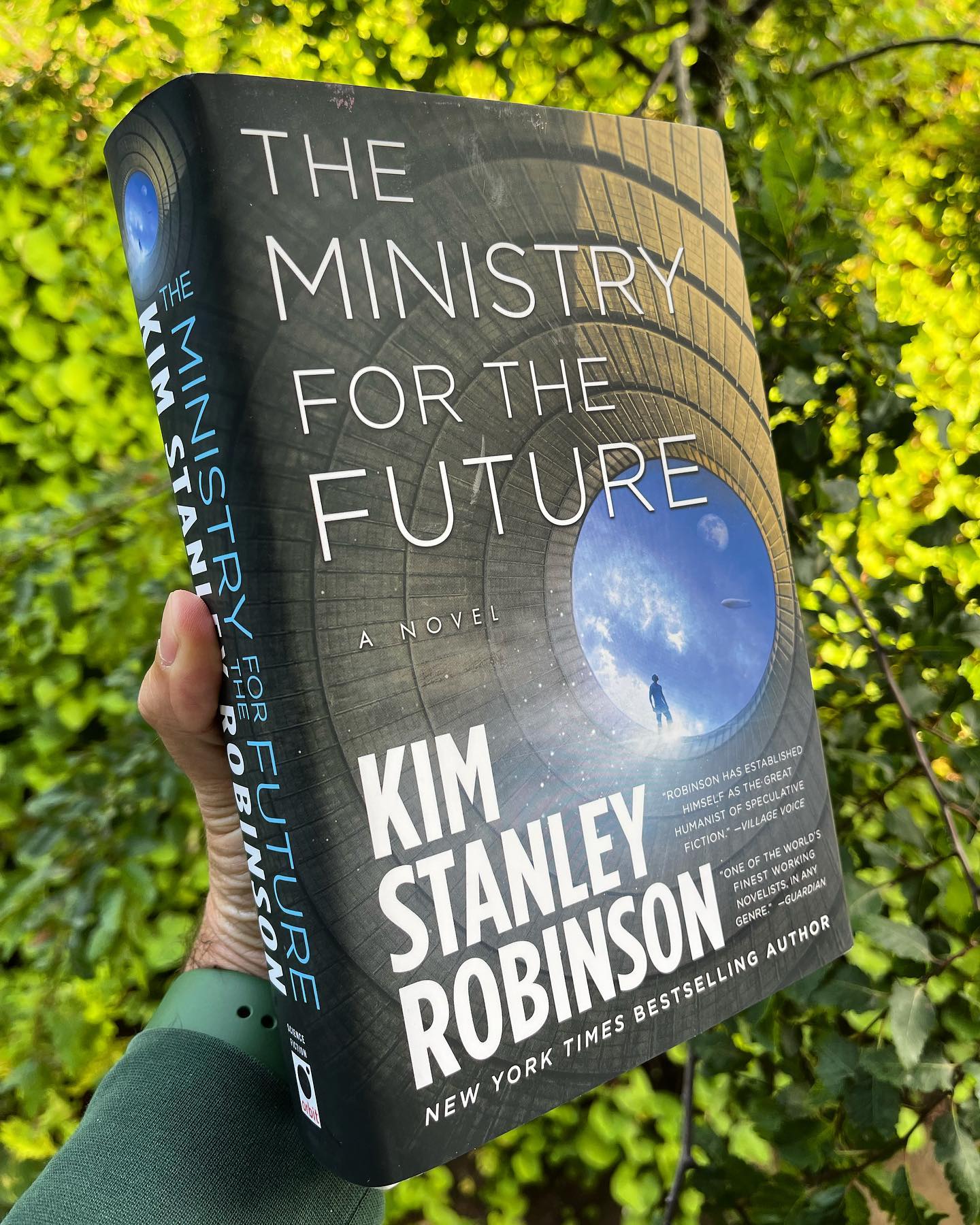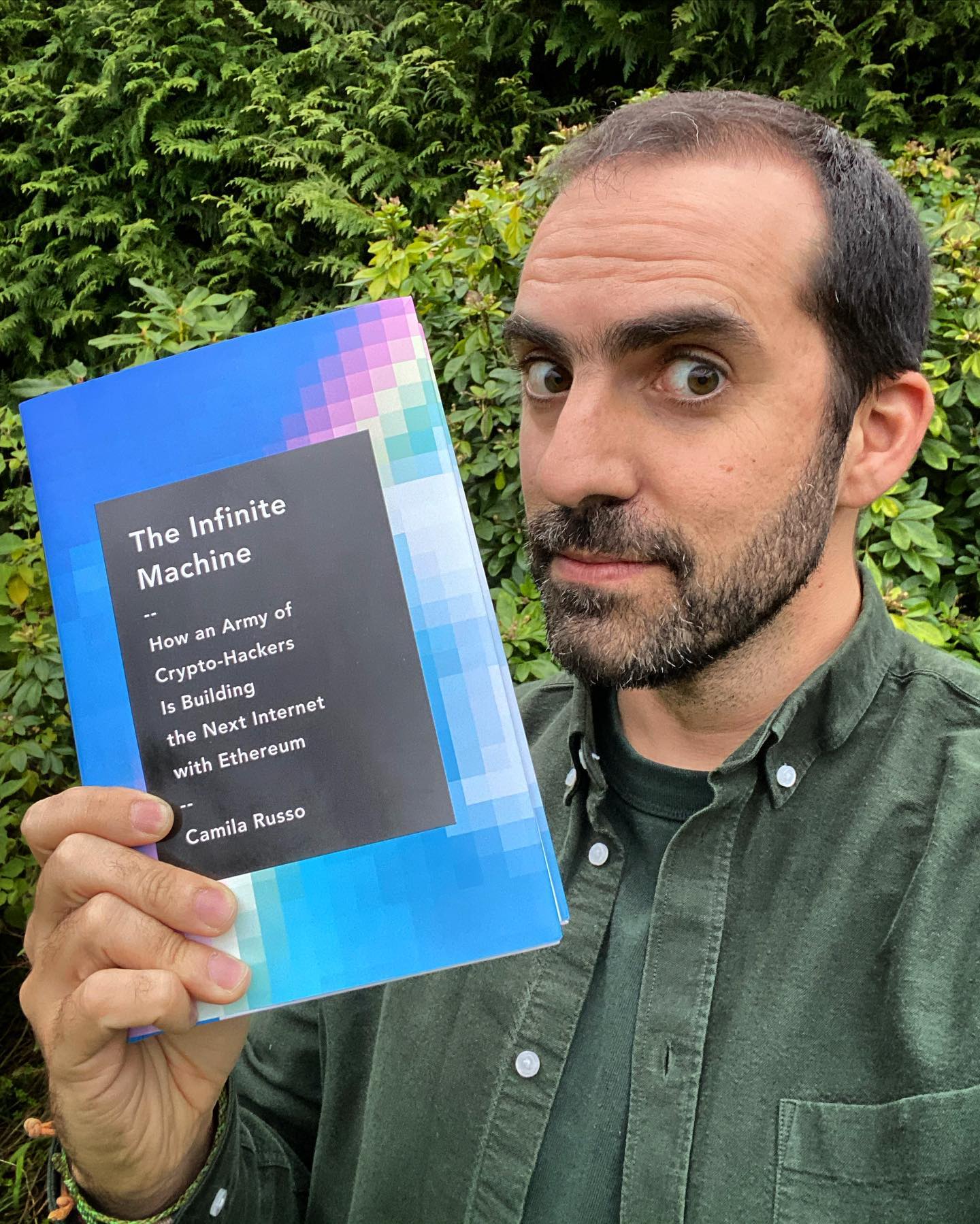Ideas and Integrities (1963)
A 50 year-old book by Buckminster Fuller that makes us reflect on our present while still being futuristic.

I grew up seeing his amazing geometric structures in the enciclopedia and would stare at these black and white pages for hours. It looked like the architecture of the future even though he had popularized it 30 years before I was born. And with a name like Buckminster Fuller, he was impossible to forget. So when a first edition of Ideas and Integrities: A Spontaneous Autobiographical Disclosure (1963) crossed my path, I had to read it.
Fuller’s optimism for humanity’s potential through “comprehensive anticipatory design” stands out—he genuinely believed (or at least expected) that by “doing more with less,” we could create a world where resources were shared equitably, unified by what he called “Spaceship Earth.”
But reading it today brings a mix of inspiration and frustration. His vision of globalization as a unifying force did not happen; instead, we see a world that’s more polarized, fragmented and isolated than ever. And instead of using technology to do more with less, we're just doing more.
Fuller’s language can also be hopeful. In his world, we are all “trimtabs”—small agents of change that can shift massive systems. He talks about “ephemeralization,” or the drive to achieve more with fewer resources, and “synergetics,” the exploration of systems that work better together than they do individually. He wrote this book before the internet was invented and he died before it ever left university campuses, but all of these elements have been immensely amplified by hyperconnectivity, and while more of us understand this, we rarely put it to practice each day.
As the title suggests, the book’s style is “spontaneous” and free-flowing, which makes it both inspiring and challenging. At times, his language is dense, his concepts technical, and his prose non-linear, moving abruptly between ideas that are sometimes redundant. The book often seems more like a brainstorm of brilliant ideas than a structured manifesto, so it should probably be treated as such. Other times its language is dated, outrageously idealistic or culturally biased, while most of the time it projects an inclusive future we should still aim towards.
Despite the distance between his vision and our reality, Fuller’s words continue to provoke and enlighten. Ideas and Integrities is a call to “think comprehensively” and act with the whole system in mind.
Fuller’s ideas are a reminder that true progress requires a global perspective and a commitment to unity, not an obsession over speed and growth on a finite planet.




